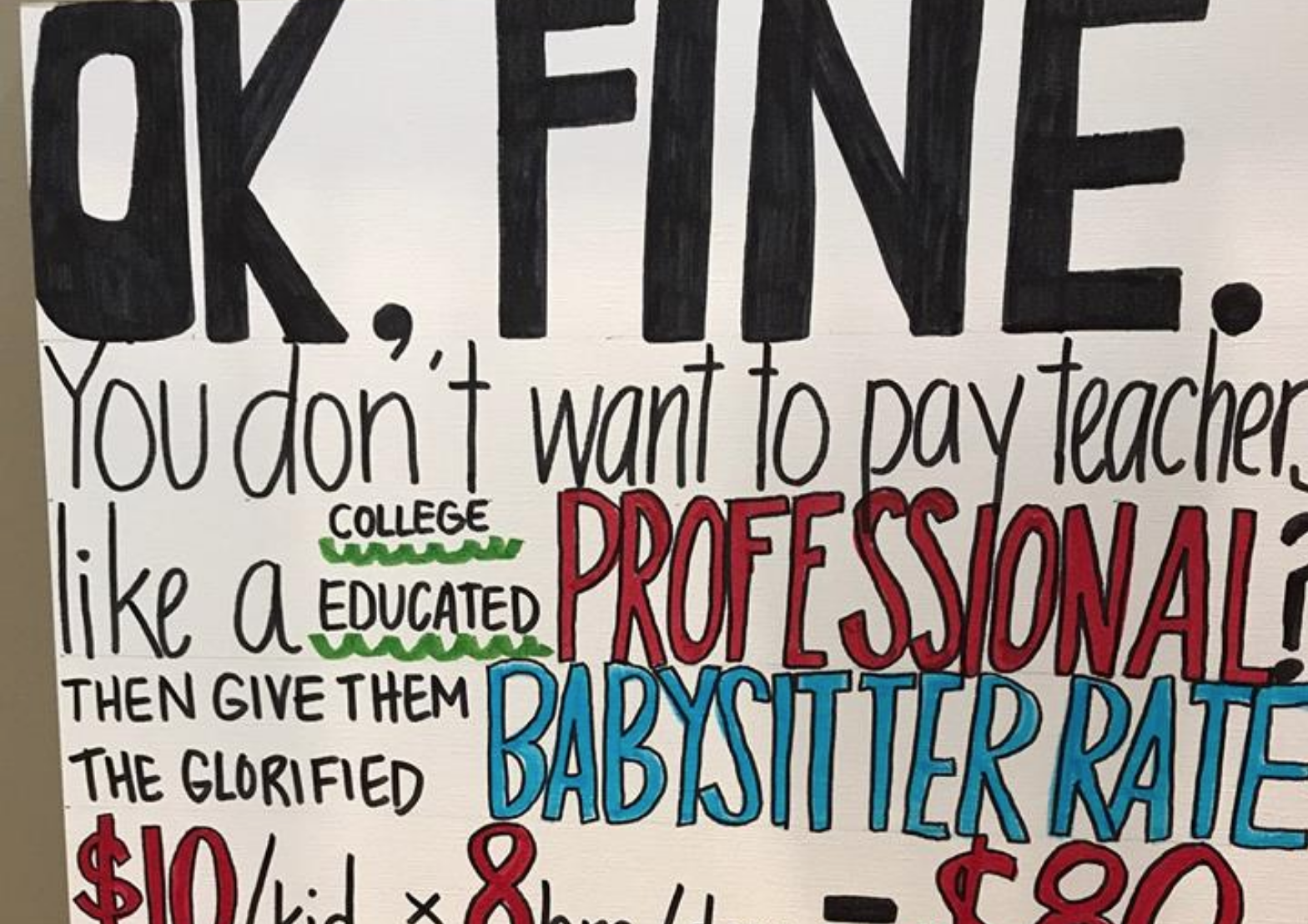
Teacher salaries are one of the most talked about aspects of public schooling. Every year, it seems, parents go viral for highlighting just how little money teachers make in comparison to the long hours they work and how much of their own money teachers are expected to spend on class supplies. This school year, a woman on Facebook decided to share what teachers would make if we actually paid them for the amount of hours they spend with our kids, and her post has sparked some heated reactions.
Facebook user Kensie Elaine shared a sign showing what a teacher salary would be if that teacher made $10 per kid, per hour -- like a babysitter might.
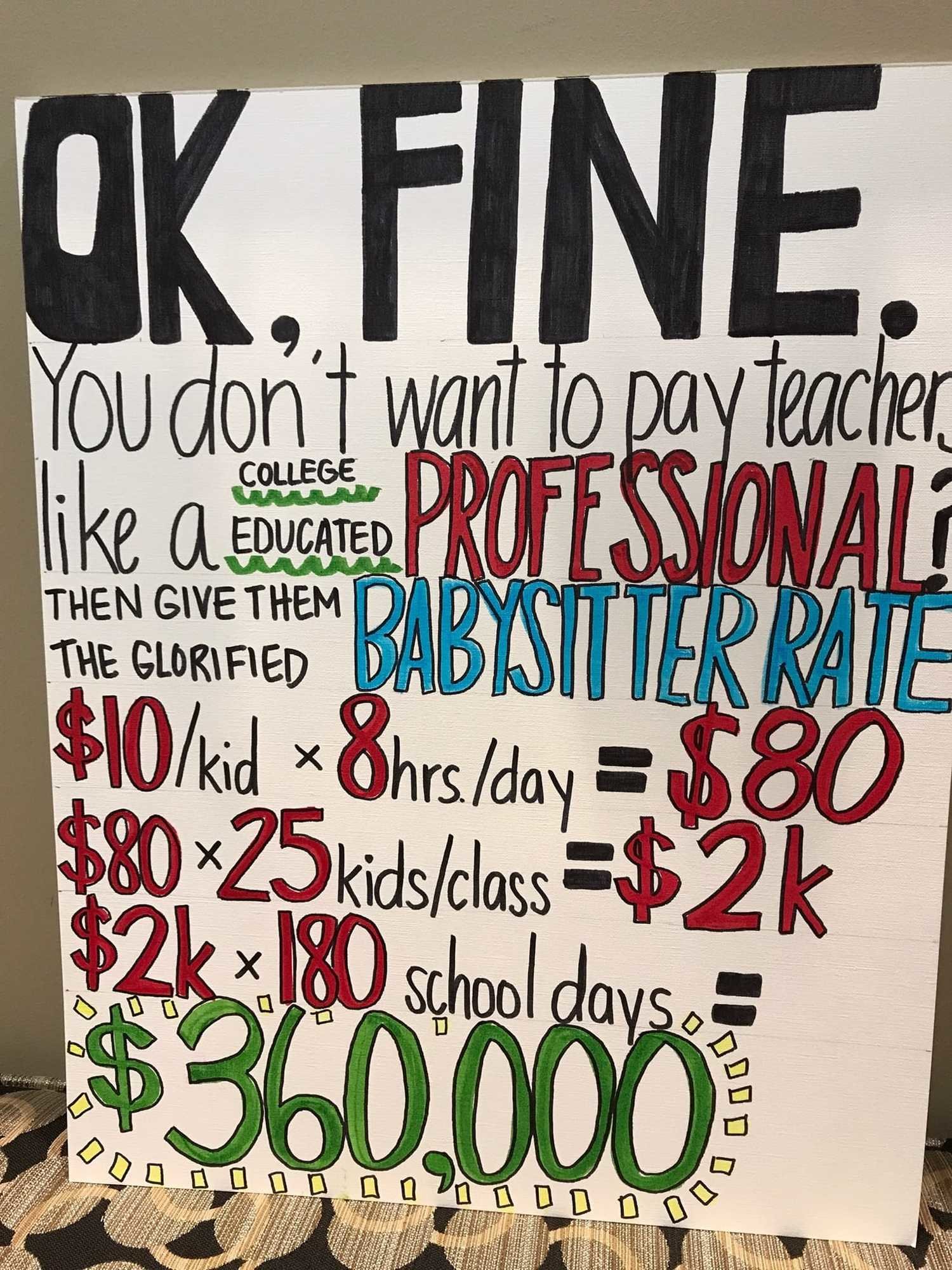
At that rate, teaching a class of 25 kids, teachers would make about $360,000 per year. The poster is a bit of an exaggeration, of course, but the point is to illustrate that teachers are highly educated individuals who are often doing several jobs at once — caregiver, educator, administrator — and yet they aren't always compensated fairly for the time and passion they put into their work.
Plenty of people understood the point that the poster was making: that teachers deserve better.


But way more people chose to tell teachers they don't deserve more money and that they should get a different job if they want higher pay.

Because we don't need teachers at all, right? They can just quit their jobs and we'll have no one in schools to teach our children. That should work out great for the country!
Others said teachers are paid more than enough money, especially because they only work "180 days a year."


But there's a little problem with people quoting the national average salary and telling teachers they don't work hard: they're WRONG.

As more than one person pointed out, the average salary is not what all teachers make, and salary can vary wildly depending on where you live. Nationwide, the average salary for public school teachers was $58,353 in 2016. But teachers in 36 states make less than that.
This map, put together by Time Money and the National Education Association, shows the actual breakdown of teacher pay nationwide.
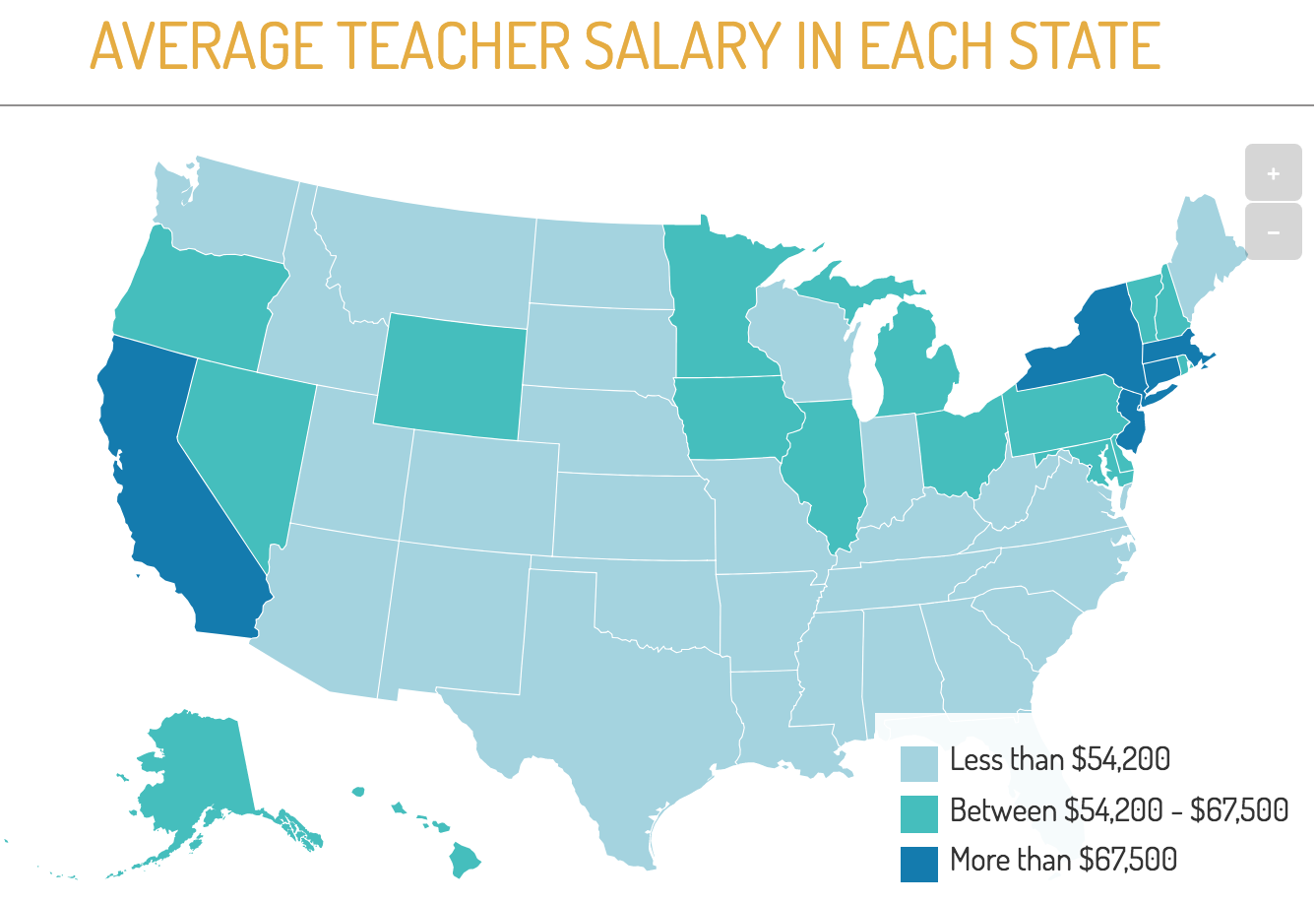
As the map clearly shows, teachers in most states earn less than the national average, and the places where they earn more are also some of the most expensive places to live in the country, meaning their salaries don't go far. According to the National Education Association, the average teacher salary in New York, for example, is $79,125 — but if a teacher making that salary lives in New York City, the average cost of living is 68 percent higher than the rest of the country (the average rent in Manhattan alone is $3,667 per month).
Linda Darling-Hammond, president and CEO of the Learning Policy Institute, told Time Money that in at least 30 states, teachers who have a family of four qualify for public assistance.
The problem is that teacher salaries, like salaries in so many other professions, have not increased in proportion to the cost of living.
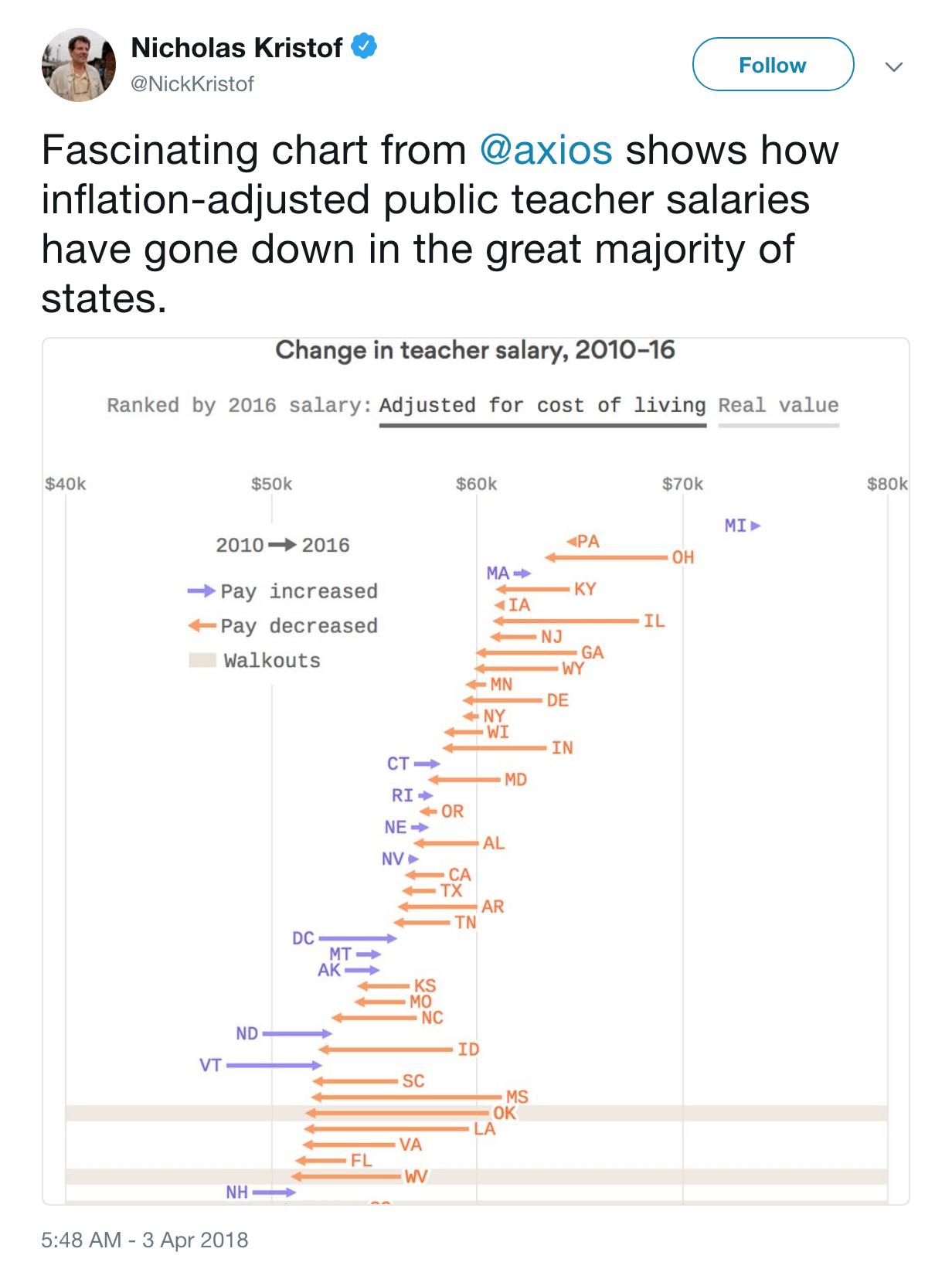
This chart, put together by Axios, shows that teacher salaries have actually gone down in the last decade when you factor in inflation. And that's not just a problem for teachers — according to the Pew Research Center, today's real average wage for the majority of Americans has about the same spending power as it did 40 years ago. But teachers have also been slammed with tighter school budgets (forcing them to spend more of their own money on supplies) and larger class sizes (which can mean longer hours planning, grading, and prepping).
In the comments on Kensie Elaine's post, many fired back against claims that teachers don't work long hours or deserve higher pay.
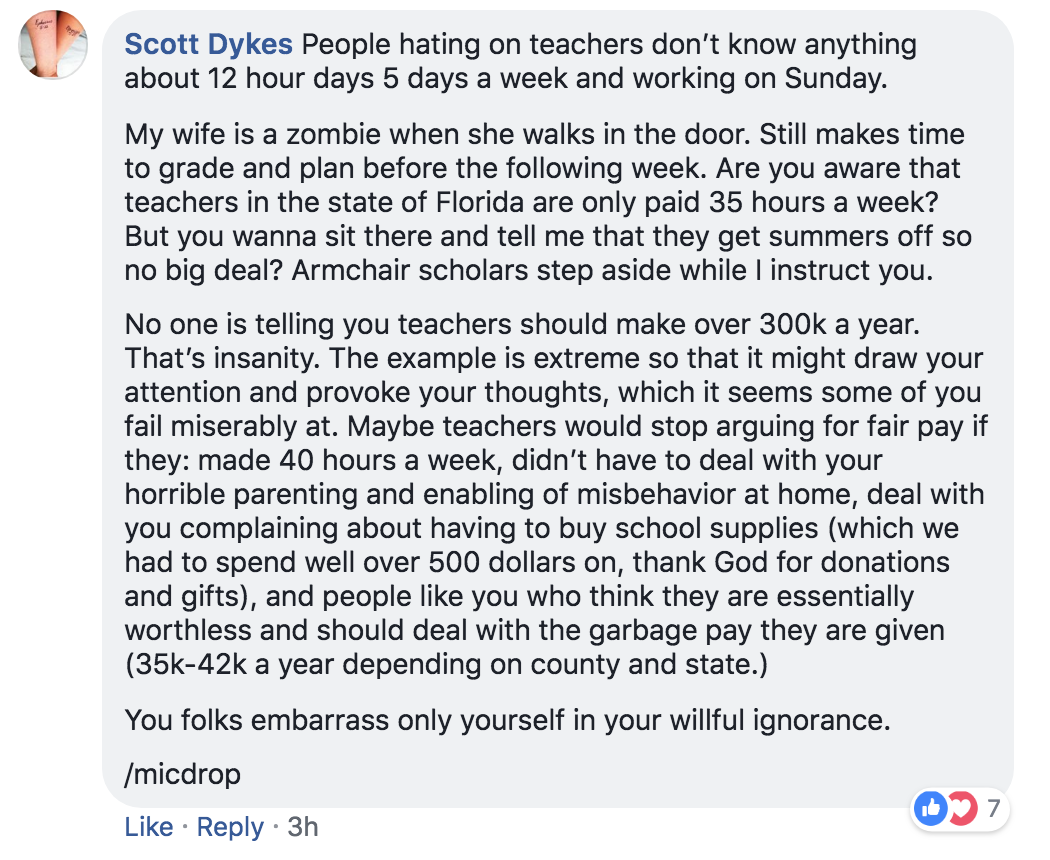
One man who's married to a teacher pointed out some other issues his wife faces that people aren't generally aware of, such as only getting paid for 35 hours no matter how long she works.
It's hard to say what would ultimately solve our problems with public education and make life better for both teachers and students. But Kensie Elaine's post did exactly what it was intended to do: it started a major discussion about a problem we desperately need to solve.




